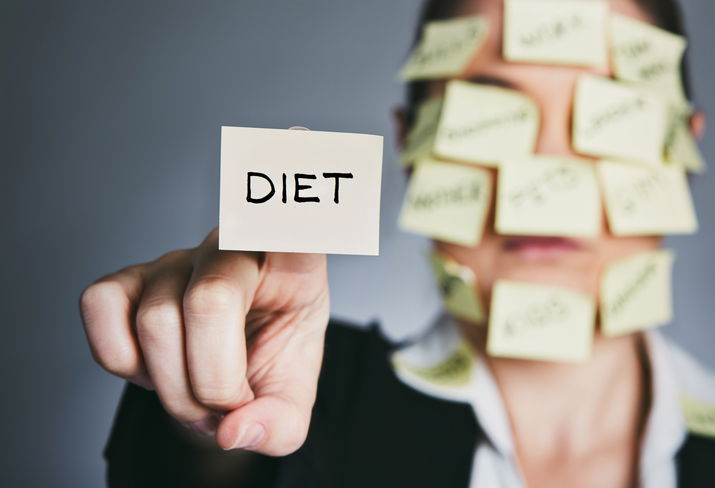How Much Do You Know About Your Diet?

Calorie restrictions put stress on the body and the body answers by producing more stress hormones that leads to increased feelings of hunger. Although it is easy to claim that dieting is rarely effective and may do more harm than good, it is important to understand that this is not due to a lack of willpower but a lack of understanding about how the body manages its metabolic set point. Your brain adjusts metabolic suppression to keep your body within a certain weight range that is determined by genes and lifestyle choices. Forecasters today estimate the total costs of our nation's being overweight could exceed a trillion dollars annually.
Despite your best efforts to use self-control and manage your eating habits, it is easy to experience setbacks that can sabotage your weight loss goals. Understanding your food triggers is essential to managing your dietary intake and setbacks, such as:
- COUNTING CALORIES - You don't want to consume too many calories but you also don't have to count them, as they are certainly not equal. Counting calories can be misleading and may work against your weight loss goals.
- NO FREE FOODS - Some diet plans suggest that you can eat as much as you like of a particular food, which is usually a low fat or low-calorie option like fresh fruit. However, that doesn't mean you should think of it as free food. If you're trying to lose weight, all calories consumed count, so make smart choices.
- EXCUSES FOR BAD HABITS - Some people have too many excuses for relaxing their dietary vigilance for holidays, special occasion, etc. with a personal belief that they've earned or deserve a break from healthy eating. The problem is, they can always find an excuse.
- SLEEP DEPRIVATION - Stress, anxiety and sleep play a major role in managing your body weight. Leptin hormone boosts metabolism to control energy expenditure over time. When your body's fat stores are reduced, leptin levels fall and appetite is stimulated.
- DIET TOO RESTRICTIVE - It might sound counterintuitive but food restrictions set you up for failure. Being too restrictive is not sustainable and leads to a fad diet burnout with binge eating and future weight gain.
- REVOLVING SABOTAGE - When your willpower runs low, you are likely to overindulge, which can unravel your best attempts at losing weight. Restricted eating leads to binge eating and the whole process develops into a bad habit.
Take a positive approach to dieting and start with a personalized menu plan. Unlike diets that focus on excluding food groups, a personalized diet allows you to consume healing foods while shifting your focus towards restoring your health and wellness. You will be able to consume large amounts of whole foods for better satiety. To determine if a diet will support your weight loss efforts, you first need to identify the foods that your body needs you to eat as well as pick foods that taste good to help regulate satiety. To learn more about effective weight loss, contact the Metabolic Research Center nearest you and schedule your FREE consultation.
By submitting this form, you agree to receive marketing text messages from us at the number provided, including messages sent by autodialer. Consent is not a condition of any purchase. Message and data rates may apply. Message frequency varies. Reply HELP for help or STOP to cancel. View our Privacy Policy and Terms of Service.

